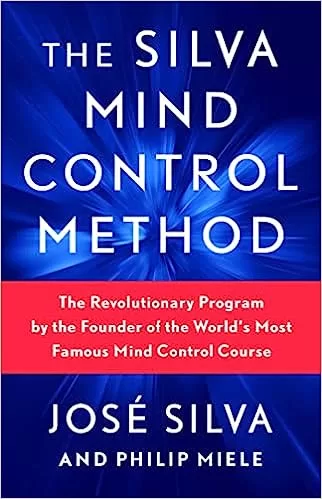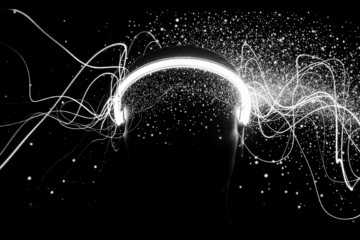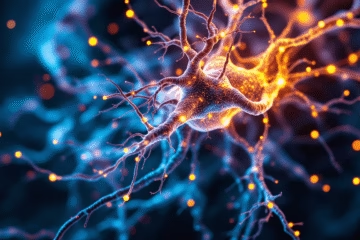Understanding Altered States of Consciousness and their profound effects on mental well-being has intrigued scientists, philosophers, and spiritual seekers for centuries. This article delves into the intricate relationship between mind and meditation, exploring how the practice can induce altered states of mind.
We unravel the scientific enigma behind these altered states of consciousness, combining ancient wisdom with modern science to reveal their power. Additionally, we discuss the tools and techniques available to induce and explore these states, offering readers a comprehensive understanding of this fascinating phenomenon.
Altered States of Consciousness
Understanding Altered States of Consciousness
Altered states of consciousness have fascinated philosophers, psychologists, and scientists for centuries. This intriguing phenomenon refers to a state of mind that deviates from our normal waking consciousness. It is a state in which our perceptions, thoughts, and experiences undergo significant changes. Exploring altered states of consciousness can provide valuable insights into the workings of the human mind and the potential for self-transformation.
One way to understand altered states of consciousness is by examining the various factors that can induce them. These factors include meditation, hypnosis, sensory deprivation, psychedelic substances, and even certain sleep disorders. Each method offers a unique entry point into altered states of mind, allowing individuals to explore different dimensions of their consciousness.
By delving into altered states of consciousness, we can better understand the intricate relationship between the mind and meditation. Meditation practices have been used for centuries as a means to achieve altered states of consciousness. Through focused attention and mindfulness, individuals can enter profound states of tranquility, clarity, and insight. These altered states not only enhance our self-awareness but also promote overall well-being.
While altered states of consciousness have been studied extensively, the scientific enigma behind them remains partially unraveled. Researchers have made significant progress in understanding the neural mechanisms that underlie these states. Brain imaging techniques have revealed distinct patterns of brain activity during altered states, shedding light on the underlying processes at play.
The profound effects of altered states of mind on mental well-being cannot be overlooked. They have been associated with enhanced creativity, improved problem-solving abilities, reduced stress and anxiety, and increased emotional resilience. Exploring these states can lead to personal growth and transformation.
Ancient wisdom meets modern science in the exploration of altered states of consciousness. While ancient traditions have long recognized the potential benefits of these states, contemporary research is beginning to validate their significance. The integration of ancient practices with scientific knowledge opens up new avenues for harnessing the power of altered states for personal development and therapeutic purposes.
To induce and explore altered states of mind, various tools and techniques are available. These range from ancient practices like breathwork and chanting to more contemporary methods such as biofeedback and neurofeedback. By employing these tools effectively, individuals can embark on a journey within themselves to unlock hidden potential and expand their consciousness.
Understanding altered states of consciousness requires a multidisciplinary approach that combines insights from psychology, neuroscience, philosophy, and spirituality. By studying these states with an open mind and rigorous scientific inquiry, we can continue to unravel the mysteries surrounding human consciousness and discover new ways to enhance our well-being and inner growth.
Unparalleled online learning experiences, New Skills Academy!
The Intricate Relationship Between Mind and Meditation
The intricate relationship between mind and meditation has fascinated philosophers, scientists, and spiritual seekers for centuries. Meditation is a practice that involves focusing one’s attention and achieving a state of deep relaxation and heightened awareness. It is through this process that the mind enters altered states of consciousness, allowing for a profound exploration of its inner workings. By quieting the constant chatter of thoughts and emotions, meditation provides a gateway to understanding the mind’s complex nature.
Meditation offers a unique opportunity to observe the mind in its rawest form, free from external distractions. Through consistent practice, individuals can develop greater self-awareness and gain insight into the underlying patterns and processes that shape their thoughts and emotions. This heightened awareness not only enhances mental clarity but also allows individuals to cultivate a sense of presence and live more fully in the present moment.
Moreover, research has shown that meditation can have tangible effects on brain structure and function. Studies using neuroimaging techniques have revealed that long-term meditators exhibit increased grey matter volume in regions associated with attention, emotional regulation, and self-awareness. These findings suggest that regular meditation practice can induce lasting changes in the brain, supporting the notion that the mind and meditation are deeply interconnected.
Understanding the intricate relationship between the mind and meditation holds great potential for improving mental well-being. By harnessing the power of altered states of consciousness, individuals can explore their inner landscapes, cultivate self-compassion, reduce stress, and enhance overall cognitive functioning. Whether seeking personal growth or relief from mental health issues, embracing this relationship opens up a world of possibilities for self-discovery and transformation.
Embarking on a Journey Within: Exploring Altered States of Mind Through Meditation
Meditation has long been regarded as a powerful tool for exploring altered states of mind. By quieting the external distractions and turning inward, individuals can delve into the depths of their consciousness and experience a heightened sense of awareness. Through regular practice, meditation enables individuals to tap into altered states of mind that transcend ordinary waking consciousness.
During meditation, the mind enters a state of deep relaxation and focused attention. As the mind becomes calm and still, the boundaries between the conscious and unconscious mind begin to blur, allowing access to different levels of awareness. This journey within can lead to profound experiences such as expanded consciousness, heightened intuition, and a deep sense of interconnectedness with all beings.
Exploring altered states of mind through meditation not only provides personal insights but also has significant implications for mental well-being. Research suggests that regular meditation can enhance cognitive abilities, improve emotional regulation, reduce stress, and promote overall psychological well-being. It is believed that these positive effects arise from the ability of meditation to alter brainwave patterns and rewire neural connections.
Furthermore, ancient wisdom meets modern science in the study of altered states of consciousness through meditation. Scientists are now using advanced techniques such as neuroimaging to unravel the mysteries behind these states and understand how they affect brain function. This integration of ancient practices with scientific research holds immense potential for unlocking the power of altered states of consciousness in various fields, including psychology, medicine, and personal development.
In conclusion, embarking on a journey through meditation allows individuals to explore altered states of mind that go beyond ordinary waking consciousness. This exploration not only offers personal insights but also holds immense potential for enhancing mental well-being and bridging ancient wisdom with modern science. By incorporating meditation into our lives, we can open up new realms of consciousness and unlock the transformative power within ourselves.
Unraveling the Scientific Enigma Behind Altered States of Consciousness
Understanding altered states of consciousness has long been a subject of fascination and intrigue. Scientists have dedicated years of research to unraveling the mysteries behind these unique mental states. Through various studies and experiments, they have made significant progress in shedding light on the scientific enigma that surrounds altered states of consciousness.
One key aspect of this exploration involves understanding the neural mechanisms that underlie these altered states. Researchers have utilized advanced imaging techniques such as functional magnetic resonance imaging (fMRI) to observe the changes in brain activity during different states of consciousness. These studies have revealed fascinating insights into the regions of the brain that are involved in altered states, highlighting the intricate relationship between brain function and conscious experience.
Furthermore, scientists have also delved into the effects of specific practices, such as meditation, on inducing altered states of consciousness. By studying experienced meditators, researchers have been able to identify patterns of brain activity that are associated with deep states of meditation. This research not only contributes to our understanding of altered states but also highlights the potential benefits of practices like meditation for mental well-being.
While there is still much to uncover, the scientific exploration of altered states of consciousness represents a significant step forward in our understanding of the human mind. By unraveling the scientific enigma behind these states, we gain valuable insights into the nature of consciousness itself and its potential for transformation. As research continues to progress, we can look forward to further discoveries that will enhance our understanding and appreciation of these fascinating altered states of mind.
The Silva Mind Control Method by José Silva
Ever wondered what it feels like to have your mind work like a finely tuned machine? Enter The Silva Mind Control Method, your guide to harnessing the power of your thoughts! This practical read promises to transform your mental capabilities like never before.
The Profound Effects of Altered States of Mind on Mental Well-being
Altered states of mind have been found to have profound effects on mental well-being. When individuals enter these altered states, they experience a shift in their consciousness, which can lead to enhanced self-awareness, emotional healing, and increased overall mental health. Through practices such as meditation, individuals can access these altered states and tap into the deeper levels of their consciousness. This can help them gain insight into their thoughts, emotions, and beliefs, allowing for greater self-reflection and personal growth.
Additionally, altered states of mind have been found to reduce stress and anxiety levels, promote relaxation, and improve sleep quality. These effects can have a significant impact on mental well-being, as chronic stress and anxiety are known to affect both physical and mental health negatively.
Furthermore, altered states of mind can facilitate the release of endorphins and other feel-good neurotransmitters in the brain, leading to an increased sense of happiness and contentment. As a result, individuals who regularly engage in practices that induce altered states of mind often report improved mood, increased resilience, and a greater sense of overall well-being.
The profound effects of altered states of mind on mental well-being highlight the importance of exploring and harnessing these states through various techniques such as meditation, breathwork, or guided imagery. By embracing these practices, individuals can cultivate a deeper understanding of themselves and experience transformative changes in their mental health.
Altered Traits by Daniel Goleman & Richard J. Davidson
In his insightful book, Altered Traits, Daniel Goleman and Richard J. Davidson dive deep into the transformative power of meditation and mindfulness. Goleman explores how these practices can alter our psychological traits and enhance well-being.
Ancient Wisdom Meets Modern Science: The Power of Altered States of Consciousness
The exploration of altered states of consciousness has captivated human curiosity for centuries. Ancient wisdom traditions from various cultures have long recognized the potential power of these altered states to expand the mind, deepen spiritual experiences, and enhance overall well-being. Today, modern science is beginning to catch up with this age-old knowledge, shedding light on the profound effects that altered states of consciousness can have on the human mind.
Researchers are now using advanced imaging techniques to study brain activity during different states of consciousness, such as meditation or psychedelic experiences. These studies have revealed that altered states of consciousness can lead to changes in brain wave patterns, neurotransmitter release, and neural connectivity. This scientific understanding not only validates the experiences described by ancient wisdom traditions but also opens up new avenues for exploring the potential therapeutic applications of altered states.
Moreover, the power of altered states of consciousness extends beyond personal well-being. Research suggests that these states can foster empathy, compassion, and a sense of interconnectedness with others and the world at large. This has significant implications for promoting social harmony and addressing societal challenges.
As ancient wisdom meets modern science, there is an exciting convergence that holds promise for unlocking the full potential of altered states of consciousness. By combining traditional practices with scientific knowledge, individuals can embark on a transformative journey within themselves and explore the depths of their minds. This integration offers a unique opportunity to bridge the gap between subjective experiences and objective measurements, ultimately leading to a deeper understanding of human consciousness and its untapped potential.
Unparalleled online learning experiences, New Skills Academy!
Tools and Techniques to Induce and Explore the Altered States of Mind
Tools and techniques play a crucial role in inducing and exploring altered states of mind. One widely used method is the practice of meditation, which allows individuals to enter into a state of deep relaxation and heightened awareness. Various meditation techniques, such as focused attention, open monitoring, and transcendental meditation, can be employed to alter one’s consciousness. Another tool commonly used is the use of binaural beats, which involve listening to specific frequencies that stimulate brainwave patterns associated with altered states. These beats can be incorporated into meditation practices or listened to to induce desired mental states independently.
Additionally, the use of sensory deprivation tanks or flotation tanks has gained popularity as a means to alter consciousness. By immersing oneself in a tank filled with warm salt water, individuals experience reduced sensory input, leading to a heightened state of relaxation and introspection. Other techniques include breathwork exercises like holotropic breathing, which involves rapid and deep breathing patterns to induce altered states, and the use of psychedelics under controlled settings, such as psilocybin or LSD, which have been found to induce profound shifts in consciousness.
It is important to note that these tools and techniques should be approached with caution and under the guidance of experienced practitioners or professionals. The exploration of altered states of mind requires a responsible and informed approach to ensure both safety and the potential for transformative experiences.
In the realm of altered states of consciousness, the mind becomes a fascinating landscape to explore. Through meditation, we can delve into the depths of our consciousness and unlock new realms of understanding and self-awareness. The ancient wisdom of meditation is now being supported by modern scientific research, shedding light on the profound effects these altered states of mind can have on our mental well-being.
As we continue to unravel the enigma behind altered states of consciousness, it is important to recognize the potential they hold for personal growth and transformation. The tools and techniques available to induce and explore these altered states are ever-evolving, offering us new ways to tap into the hidden potentials of our minds. As we venture further into this journey, it becomes clear that there is much more to discover and understand about the intricacies of our consciousness. How can we harness the power of altered states of consciousness to enhance our lives and cultivate a greater sense of well-being? This question remains open for reflection and exploration, inviting us to continue seeking knowledge and wisdom in this fascinating field.
Body, Mind, And Soul For A Fulfilled Life!






